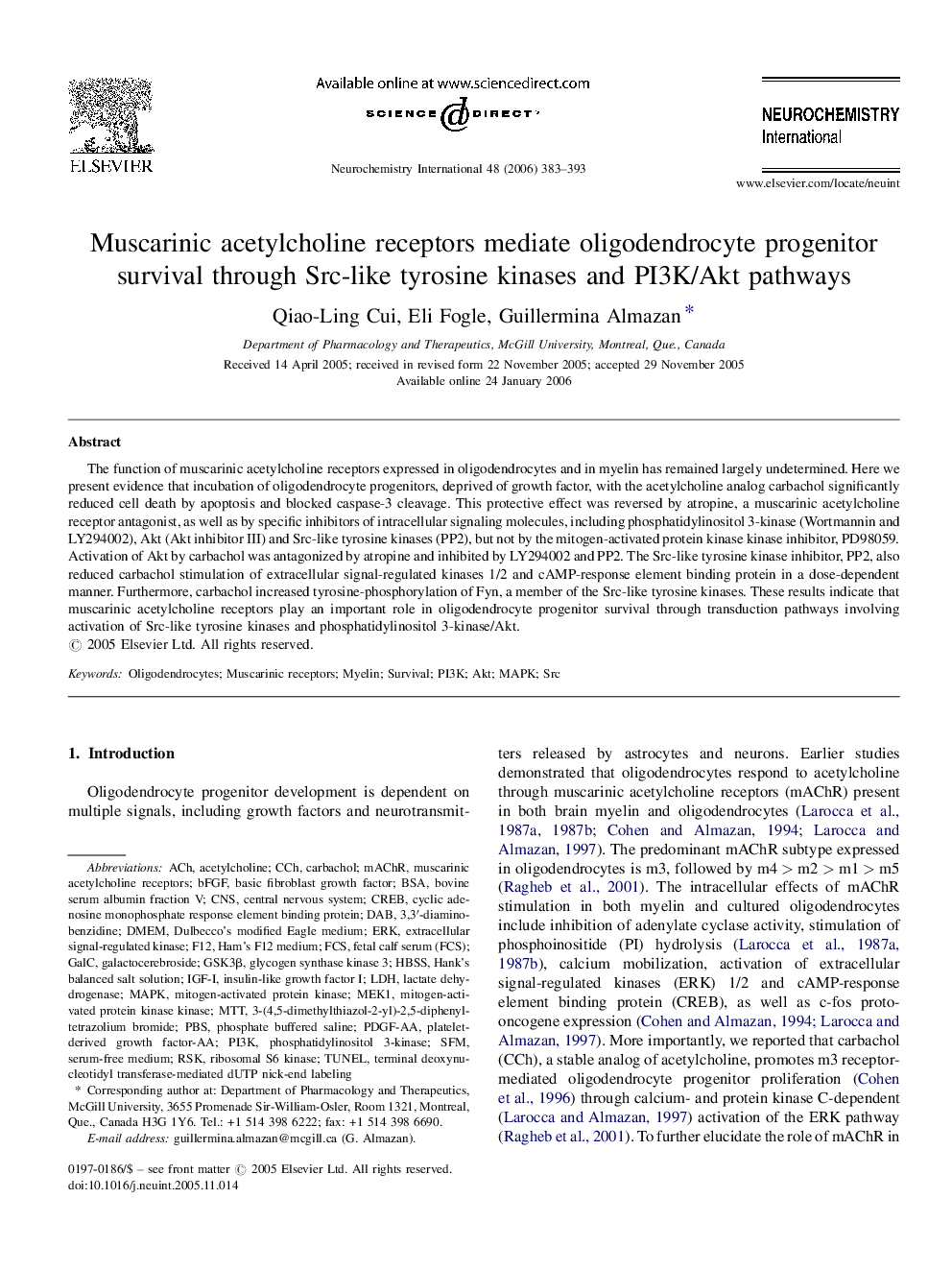| Article ID | Journal | Published Year | Pages | File Type |
|---|---|---|---|---|
| 2201815 | Neurochemistry International | 2006 | 11 Pages |
The function of muscarinic acetylcholine receptors expressed in oligodendrocytes and in myelin has remained largely undetermined. Here we present evidence that incubation of oligodendrocyte progenitors, deprived of growth factor, with the acetylcholine analog carbachol significantly reduced cell death by apoptosis and blocked caspase-3 cleavage. This protective effect was reversed by atropine, a muscarinic acetylcholine receptor antagonist, as well as by specific inhibitors of intracellular signaling molecules, including phosphatidylinositol 3-kinase (Wortmannin and LY294002), Akt (Akt inhibitor III) and Src-like tyrosine kinases (PP2), but not by the mitogen-activated protein kinase kinase inhibitor, PD98059. Activation of Akt by carbachol was antagonized by atropine and inhibited by LY294002 and PP2. The Src-like tyrosine kinase inhibitor, PP2, also reduced carbachol stimulation of extracellular signal-regulated kinases 1/2 and cAMP-response element binding protein in a dose-dependent manner. Furthermore, carbachol increased tyrosine-phosphorylation of Fyn, a member of the Src-like tyrosine kinases. These results indicate that muscarinic acetylcholine receptors play an important role in oligodendrocyte progenitor survival through transduction pathways involving activation of Src-like tyrosine kinases and phosphatidylinositol 3-kinase/Akt.
